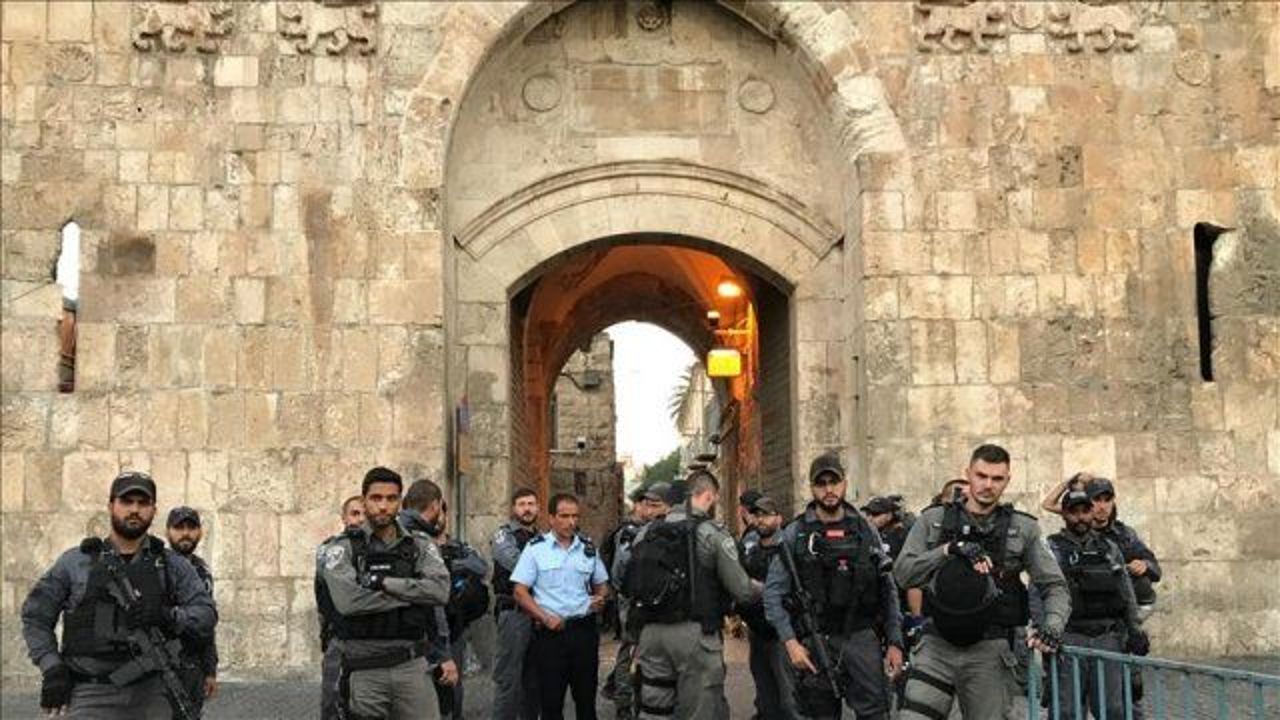Al-Aqsa tension spills over into Jerusalem clashes
Days of tension around Jerusalem's flashpoint Al-Aqsa mosque spilled into clashes between Palestinian youth and Israeli forces in several East Jerusalem neighborhoods through Monday night.

Clashes began when police forced away worshipers trying to congregate at Lions Gate entrance to the Old City for Sunday prayers and then used stun grenades to disperse a group who had blocked the main road to pray.
There have been frequent standoffs between Israeli police and Palestinians gathering outside the gates of Al-Aqsa mosque for each of the daily prayers to protest new Israeli security measures.
The Palestinian Red Crescent said at least 50 were injured during the incident, which was followed by clashes concentrated in the Issawiya and Silwan neighborhoods of occupied East Jerusalem.
Police spokesman Micky Rosenfeld said six Palestinians were arrested during the violence, which involved petrol bombs, fireworks and stones being launched at Israeli forces.
The Palestinian Authority's leading faction, Fatah, has called for a "Day of Rage" on Wednesday, in response to the new security measures, which Palestinians say alter the delicate balance of prayer and visiting rights, known as the status quo.
Mosque officials have called on Muslim worshipers not to pass through metal detectors installed at the gates when the mosque reopened Sunday after a two-day closure imposed in response to a deadly shootout within the holy site.
The site is considered exceptionally holy by both Muslims and Jews, who call it the Temple Mount.
Israel closed the holy site on Friday after two Israeli police officers and three Palestinians were killed in a shootout, saying they were searching for weapons.
The attack was condemned by Palestinian President Mahmoud Abbas but the Palestinian Authority has also since criticized Israel's reaction.
Anadolu Agency







